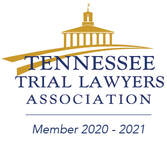|
It is not uncommon for creditors to unknowingly (and sometimes knowingly) break the law when attempting to collect a debt. When that occurs, the rules are in your favor, and we can help you 'drop the hammer' on them. They can be fined, and in certain circumstances you can sue them for damages.
The FDCPA (Fair Debt Collection Practices Act) was passed to, among other things, " eliminate abusive practices in the collection of consumer debts, promote fair debt collection, and provide consumers with an avenue for disputing and obtaining validation of debt information in order to ensure the information's accuracy." You can read the specifics here. The term 'debt collector' is "any person who uses any instrumentality of interstate commerce or the mails in any business the principal purpose of which is the collection of any debts, or who regularly collects or attempts to collect, directly or indirectly, debts owed or due or asserted to be owed or due another." There are many ways debt collectors can violate the act, including:
Also, if the consumer notifies a debt collector in writing that the consumer refuses to pay a debt or that the consumer wishes the debt collector to cease further communication with the consumer, the debt collector shall not communicate further with the consumer with respect to such debt. The debt collector, may, however, communicate settlement options, or confirm that further efforts are being terminated. Debt collectors may not harass. The debt collector violates the act if they are speaking to the consumer, consumer's spouse, or guardian (if the consumer is a minor) and knowingly uses obscene or abusive language, publishes a list of consumers who allegedly owe a debt, advertises for the sale of a debt to coerce payment, causing a telephone to ring or engaging a person in a phone conversation repeatedly, and/or making phone calls without meaningful disclosure of the caller's identity. False representation: debt collectors also may not claim association with, bonded by, vouched for, or affiliated with the United States or any State with some sort of badge, uniform, or anything similar. There are stipulations within the act, however, that may allow a debt collector to claim their violations were not intentional and were bona fide errors. The preponderance of evidence, however, must be quite convincing for most courts to decide against the consumer. These are just a few of the occurrences that you may be dealing with if being pursued by a debt collector or collection agency. If you feel they have overstepped their boundaries in their efforts, contact us for a consultation at the law office of T. Verner Smith, by calling (731) 423-1888. |
Verner smith blogCall us at (731) 423-1888 Archives
May 2024
Categories
All
|
No attorney-client relationship is established by contacting the firm; No confidential info should be sent via the internet; No legal advice is given on the site.
Privacy Policy - Website Disclaimer
Privacy Policy - Website Disclaimer


 RSS Feed
RSS Feed



